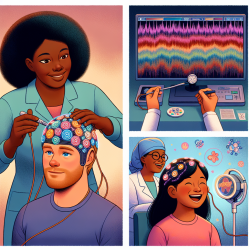Introduction
Adverse Childhood Experiences (ACEs) have long been recognized for their profound impact on children's development. A recent study titled Children and Caregivers’ Exposure to Adverse Childhood Experiences (ACES): Association with Children’s and Caregivers’ Psychological Outcomes in a Therapeutic Preschool Program provides valuable insights into how these experiences affect children and their caregivers in therapeutic preschool settings. This blog explores the study's findings and offers guidance for practitioners looking to enhance their skills and understanding of ACEs.
Key Findings of the Study
The study examined a sample of 30 preschool children enrolled in a Therapeutic Nursery Program (TNP) and their caregivers. The children were referred to the program due to significant social-emotional development delays. The research highlighted several key findings:
- Children with higher exposure to ACEs exhibited more biased social information processing patterns, yet displayed better inhibitory control and social skills as reported by staff.
- Caregivers of children with higher ACE exposure reported lower child social skills, indicating a discrepancy between caregiver and staff observations.
- Caregiver exposure to ACEs was positively associated with negative child and caregiver outcomes, including increased feelings of anxiety and anger in the caregiver-child relationship.
Implications for Practitioners
For practitioners working in therapeutic preschool settings, these findings offer several implications:
- Understanding Discrepancies: Practitioners should be aware of potential discrepancies between caregiver and staff reports. This awareness can guide more comprehensive assessments and individualized intervention plans.
- Focus on Inhibitory Control: The study suggests that children with higher ACE exposure may develop better inhibitory control. Practitioners can leverage this strength by incorporating activities that further enhance self-regulation skills.
- Support for Caregivers: Given the impact of ACEs on caregivers, practitioners should provide support and resources to help caregivers manage their own stress and improve their relationships with their children.
Encouraging Further Research
While the study offers valuable insights, it also highlights the need for further research. Practitioners are encouraged to explore the following areas:
- Longitudinal Studies: Conducting longitudinal studies can help understand the long-term effects of ACEs on children and caregivers in therapeutic settings.
- Attachment and ACEs: Investigating the role of attachment security in moderating the effects of ACEs could provide deeper insights into intervention strategies.
- Broader Samples: Expanding research to include larger and more diverse samples can help generalize findings across different populations and settings.
Conclusion
The study on ACEs in therapeutic preschool settings underscores the complexity of these experiences and their varied impacts on children and caregivers. By understanding these dynamics, practitioners can better support the social-emotional development of children and foster healthier caregiver-child relationships. For those interested in delving deeper into the research, the original paper offers a comprehensive analysis of the study's findings and implications.
To read the original research paper, please follow this link: Children and Caregivers’ Exposure to Adverse Childhood Experiences (ACES): Association with Children’s and Caregivers’ Psychological Outcomes in a Therapeutic Preschool Program.










